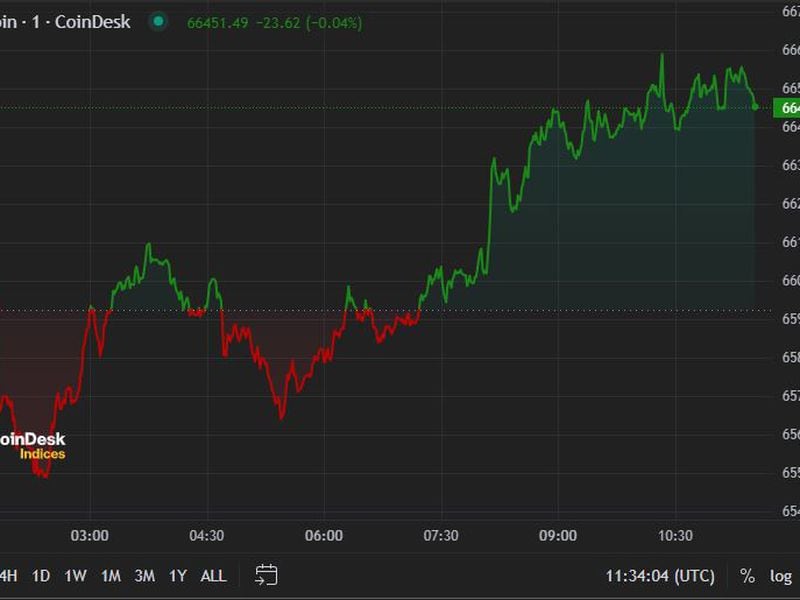This article originally appeared in First Mover, CoinDesk’s daily newsletter, putting the latest moves in crypto markets in context. Subscribe to get it in your inbox every day.
Bitcoin regained $66,000 following Tuesday’s dip below $65,500, but ongoing Mt. Gox-related selling pressure has tempered chances of a sustained rally. Mt. Gox moved over $3 billion worth of BTC between different wallets, according to Arkham data. It ultimately sent $130 million to crypto exchange Bitstamp. There’s an expectation that creditors will immediately sell their BTC on receipt, which is why the coin movements tend to weigh on bitcoin’s price. BTC sits at around $66,500 at the time of writing, little changed from 24 hours ago. The wider crypto market, as measured by the CoinDesk 20 Index (CD20) was also little changed.
Ether ETFs in the U.S. saw net inflows of around $107 million on their first day of trading, with volumes surpassing $1 billion. The BlackRock iShares Ethereum Trust ETF (ETHA) led with inflows of $266.5 million, followed by Bitwise’s Ethereum ETF (ETHW) at $204 million. Total trading volume was around one-fifth the bitcoin equivalents experienced on their debut in January. Many market observers had speculated that volume and flow for the ETH ETFs would be underwhelming due to a lack of staking mechanism. Ether traded just below $3,500 during the Asian and European mornings, around 1.3% lower than 24 hours ago.
There are few bitcoin miners with the same power at their disposal as Iris Energy, Canaccord said in a report on Tuesday. “The company is building 510 MW of data centers in 2024, secured 2,160 MW of power capacity, and has a 1 GW plus development pipeline,” analysts wrote. The broker raised its target for the company to $15 from $12 while maintaining its buy rating. Iris Energy was trading 3% higher at $11.23 in pre-market trading on Nasdaq. Earlier this month, Iris shares slumped 14% after a short seller said its Childress, Texas site was not suitable for hosting AI or high-performance computing. “We think management will be opportunistic in expanding the use case for its data centers beyond bitcoin mining and is well-prepared from a power, cooling, and network perspective,” Canaccord wrote.
The chart shows an annualized three-month basis in ETH futures, or the gap between futures and spot price prices.
Futures are currently trading at a significantly lower premium than in the first quarter.
That might demotivate the “carry or basis traders,” resulting in a weak uptake for the U.S.-listed spot ETH ETFs.
Spot BTC ETFs, which debuted in January, have been preferred by carry traders, who are looking to profit from price discrepancies between spot and futures markets.
– Omkar Godbole

























